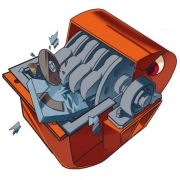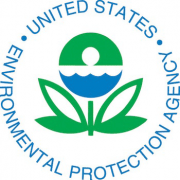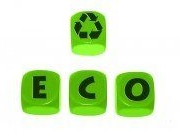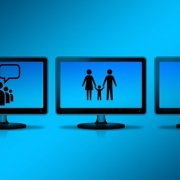Sensible Recycling News and Community Events
Computer & e-Waste Recycling for Orlando, FL
/in Sensible News/by Sensible RecyclingMoore’s Law Creating Computer & e-Waste Recycling Issue for Orlando FL Landfills
Inbuilt obsolescence and the pace of technical improvements in computer, cell phone, and IT equipment is leading to toxic landfill problems in cities like Orlando because of what’s known as e-Waste
In the opinion of Florida e-waste recycling experts Sensible Recycling, Moore’s Law, Intel Corporation co-founder Gordon Moore’s observation that computer chip density roughly doubles every 2 years has an alarming, less beneficial consequence for large tech-heavy cities like Orlando, Florida.
New, more capable chipsets lead to faster obsolescence of working computers, cell phones and the network server equipment that enables the interconnected world. As a result, businesses need to update their IT infrastructure frequently in order to compete in the fast-moving electronic economy, and in doing so, create massive stockpiles of old computing equipment known as e-waste that ends up in local landfills.
Orlando FL is the world’s best-known family tourist destination, but it is also home to one of America’s fastest-growing technical communities, which includes aerospace, computer chip, and finance companies. In addition, the low cost of living in Florida compared to California’s Silicon Valley, and its well-educated workforce is attracting a great number of new tech startups to the region which will only make the e-waste and computer recycling problem more acute for Orlando’s city hall in the future.
Aaron Enos, CEO of veteran owned and operated Sensible Recycling of Jacksonville FL notes “Public awareness of the dangers of electronic waste is pretty low. The sleek exteriors of smartphones, laptops and computer systems make it hard to envision them as dangerous, but underneath that outer shell there are materials like lead, cadmium, lithium and a host of other toxins that will eventually leak into groundwater.”
The most often used alternative to landfill is the incineration of these devices, but that only leads to toxic compounds like dioxins being released into the air. The fact of life firms and city halls are beginning to come to terms with is these materials have to be handled in a way that neutralizes the danger to the public and doesn’t simply swap groundwater pollution for air pollution in the waste handling process.
Fortunately, there is a wealth of recyclable materials in all electronic devices, and especially in equipment such as computers, disk drives and cell phones where there is a large number of chips on each printed circuit board. Recycling of copper and aluminum from e-waste is fairly obvious, commonplace and easy to do, but surprisingly, there is also more gold and silver per pound of compacted electronic waste than in the alluvial deposits of most commercial gold and silver mines. That simple fact is helping to create a market for ultra-low cost recycling options for businesses with aging IT infrastructures.
Enos adds “There is a solid enough business model in e-waste that it’s possible to offer a completely free, zero dollar service to any size of business. Devices are picked up for free then processed safely and securely, all free of charge. Witnessed and certified destruction services like hard drive shredding are also provided free of charge because there is enough money in the residual materials of a typical disk drive, computer or cell phone.”
Visit the company website using the link at the top of this article and schedule a free pickup of obsolete computers, cell phones, and IT infrastructure products and begin a zero cost relationship that will have great benefit for the people of Orlando and the local environment.
BAN get sued for their scare tactics.
/in Sensible News/by Sensible RecyclingThis is what BAN deserves for using scare tactics to drive attention and funding to their voluntary and costly E-Stewards certification. Shipping material to a “developed country” like Hong Kong is really no different from shipping to “developing country” like Pakistan. Maybe they should try focusing on creating industry standards that make a difference, or lobby for real oversight.
BAN is a money machine. Companies pay a lot of money for their certification. Have a big E-Waste business? Maybe Mr. Puckett will come by and deliver a GPS tracker to your export material and try to shame you too! The truth is, most of the E-Scrap (computers, and electronics) that flow into Hong Kong, leave to other destinations in mainland China. At least they did. China is trying to clean up its act by preventing the import of 24 types of unprocessed waste.
Who is Mr. Puckett benefitting? It certainly isn’t the environment. It seems his little shame game is really nothing more than a self-serving scheme that does nothing but perpetuates favored trade channels. His environmental scare tactics drive consumers to push for false certifications and to support the companies that hold them. In reality, there are no good environmental solutions stemming from this, only fatter pockets.
My rant:
/in Sensible News/by Sensible RecyclingI just sat through a presentation from a local competitor that decided to use his time speaking to spout scare tactics concerning hazardous waste, the EPA, and his lack of knowledge of the electronics recycling industry to justify the fees he charges for recycling electronics to support his overhead bloated company. Instead of informing his audience about our industry, he decided to use his time to bash our “free” model of recycling because we are taking business away from him.
As a customer, why should you pay a fee for a service in that a business is generating revenue from unless that fee is going towards paying bloat because the business is not being run in an efficient manner? Inefficiency comes in different forms: whether it is lack of understanding the industry, paying for gimmicky certifications or corporate status, or just a lack of the fundamental knowledge of how to maximize revenue from the material that needs to be recycled. If a company is charging fees for recycling items that have value on the backend, ask yourself why.
Customers should not have to be chided into using one company over another through the use of scare tactics. All too often we see businesses or individuals use scare tactics on their customers in an effort to drive more business. Unfortunately, there are bad actors in the recycling industry and customers should be concerned about how their material is being handled or how their data is being destroyed, but when an “electronics recycling” company has to resort to misrepresenting what the EPA Superfund rules are and how they are used or tell you the EPA could come after you, be wary.
Finally, when an “electronics recycling” company can not figure out how to find value in the electronics residents and businesses give to them to recycle (like printers and monitors), then you need to ask yourself what kind of “electronics recycling” company they really are. Obviously not a good one, or not really one at all.
Sure there are items that cost to be disposed of properly, but this should be a cost of doing business. Electronics recycling isn’t about cherry picking the items with a high margin or to charge money for lower grade items in order to make more money to support a gimmicky business model. Electronics recycling is a service in which the goal is to do good for the community and the environment. We at Sensible Recycling are fortunate enough to have a profitable business that answers the call of environmental stewardship and providing a valuable service to our community at no charge. This is the point this competitor misses. Not charging forces us to find value in nearly everything that comes through our doors which in turn leads to responsible recycling. Value is not found through gimmicky certifications and corporate status. Value to me means providing a service that does everyone good.
And to the guy that spoke this morning: if your company is having a hard time competing with mine and you have to make insinuations and scare people to make up for the business you lost, maybe you should take a look at your model and trim some of that overhead out. Also, you are in violation of your gimmicky certification for selling your escrap to a local non-certified recycler. Practice what you preach!
That’s not data security!
/in Sensible News/by Sensible RecyclingSince we began last year in 2016 with our philosophy of complete data destruction, all of a sudden the computer refurbishing companies in the area are touting data security as well. I can tell you when we started up they weren’t. Of course, any business has to react to changes in the marketplace to survive, but they should really just stick to what they do and refurbish computers.
I say this because when you refurbish computers, you need hard drives. This is where it gets hypocritical. In order for them to make money, they have to reuse hard drives. New hard drives are expensive and cut into the margin. When you refurbish, your overhead is high and used drives are key as they come with the equipment. Or if you have to buy them, they don’t cost nearly as much as a new drive. So what they do is offer data destruction, if you ask for it. And it’s going to cost you. Hey, someone has to pay for the drives. So in essence, they may destroy one person’s drives only to reuse another’s. That sure doesn’t sound like data security to me.
Hey refurbishers, stick to rebuilding computers. Don’t tout data security with a hypocritical solution. Destroying one customer’s drives only to reuse another’s isn’t right, and it’s misleading.
Misleading Customers
/in Sensible News/by Sensible RecyclingElectronics recycling is still somewhat of a new industry in some areas. Many people I speak to are still unfamiliar with recycling their old electronics. Because of this, some recycling businesses take advantage of their customers’ lack of knowledge and mislead them. This is unfortunate because this reflects poorly on all of us that run electronics recycling businesses.
There exist a few certifications that are available to the electronics recycling industry. These certifications are meant to help control our practices and ensure we are handling the material in an appropriate manner. Some large businesses require the companies they use to have these certifications. They are costly, and in my opinion, really have no teeth to them. Nevertheless, they are good for some companies.
What is not good are companies that misrepresent themselves by saying they have these certifications, when they don’t. The use of the logo is prohibited and to say you are in process of getting a certification, that is prohibited also. We have another local company in town that is falsely using the R2 logo in order to mislead their customers and misrepresent their business. On all accounts, this is wrong. Companies like this leave a bad reputation for all of us that run an electronics recycling business.
If you are looking into having your electronics recycled and these certifications mean something to you, do your research. Make sure the company is really who they say they are. If you find a company that is lying to their customers about their certifications, you can bet they are lying to you when it comes to your data and how they handle the electronics.
Mobile Hard Drive Shredding
/in Sensible News/by Sensible RecyclingSensible Recycling realizes how important your data is. In order to meet the demand for data security while properly recycling old electronics, we are rolling out our mobile hard drive shredding service in late August or September of 2017. This service will be performed at no charge just like all of our other services. We will bring the destruction to you in order for you to observe the hard drive destruction. The hard drives never have to leave your property. Please give us a call or send us an email for more details.
The Truth About EPA ID Numbers
/in Sensible News/by Sensible RecyclingThe Truth About EPA ID Numbers
If you have been looking around, you may notice that some electronics recyclers advertise the fact they have an EPA ID number. What is it, and should it influence your decision for making a choice in electronic recycling centers? I want to take a few minutes and explain what an EPA number is and what it means. It seems a bit misleading when you look at the fancy symbol or hear someone tell you their facility has an EPA ID number. It sounds like it means the site is ultra-environmentally friendly, but…
An EPA ID number is used to identify hazardous waste generators, transporters, treatment, and storage and disposal facilities. It is not an endorsement of a clean, environmental facility, and the EPA does not issue certifications for electronics recycling. The EPA uses the ID number as a way to keep track of the businesses that deal with hazardous waste. When it comes to recycling electronics, none of it is considered hazardous waste in the State of Florida. Cathode Ray Tubes (CRT’s) can be considered hazardous waste if they are collected stored beyond a certain amount of time. If an electronics recycling center is collecting and storing CRT’s for an extended amount of time, they aren’t doing the right thing with them. Some batteries must be managed as hazardous waste, falling under the universal waste regulations, but as long as they are not being stored for an extended amount of time it is not counted toward the facility being classified as a generator. As far as electronics recycling goes, the following States are the only States that count electronics as Universal Waste: Arkansas, California, Colorado, Connecticut, Louisiana, Michigan, Nebraska, New Jersey.
So why do some electronics recycling centers have an EPA ID number? Maybe they don’t understand what it is. Maybe they are storing material like CRT’s and batteries. If they are storing material like that, are they really recycling and doing what you expect a recycler to do? Finally, maybe they know that the majority of the public doesn’t understand what an EPA ID really means and uses this misperception as a marketing tactic. I think most people would understand the EPA ID number to mean the facility is EPA certified, but as I mentioned, the EPA does not certify electronics recyclers. Don’t let the deception fool you when you need to make a choice in an electronics recycling center.
View from the Garbage
/in Sensible News/by Sensible Recycling
So here I am, three months into my new electronics recycling business. I feel like I am on the cusp of taking over Jacksonville, Fl and St. Augustine, FL. I have these dreams of becoming the premier electronics recycling center in North Florida. Heck, I want the Jacksonville, FL market to be my stepping stone to the South East.
I know, I am getting way ahead of myself. Keep my feet on the ground. Focus on computer recycling one day at a time. I have my moments at least. I haven’t had a chance to get out and market for three weeks now. Things seem to be going pretty well, but…
Every Sunday evening, I ride my bike through my neighborhood with my family and I am reminded of the challenges I am faced with. See, Monday is trash day and everyone puts their trash out on the curb Sunday evening. Riding by I see all the electronics, computers, monitors, etc. in the trash. Where it doesn’t belong! Why? Do people not know? Is it easier to do the wrong thing? I am reminded of how much work I need to do.
As someone trying to make my way on my own by trying to build an electronics recycling company, I am disheartened, but driven by all of the material I see in the trash. How do I get these people to recycle their electronics instead of throwing them away? How do I get them to care enough about destroying the data on their hard drives instead of letting enter the waste stream? These are just a few of the questions I need to figure out how to answer in order to become a successful electronics recycling company.
So as I continue to grow and have the ability to increase my marketing budget, I want to reach out to more people. I want them to know the problems old electronics create in landfills. In a world where we are facing global warming, and finite resources responsibly recycling computer and electronics should matter. They just don’t belong in the trash. It’s easy for someone to say they care, but acting seems to be much harder.
Sensible Recycling was founded to make computer and electronics recycling easy. If you live somewhere near Jacksonville or St. Augustine, call us. We will come to you, free of charge. Electronics don’t need to go in the trash, because we will pick them up. Feel good as the electronics are responsibly recycled, you are helping keep the environment clean, and you are supporting a local business.
Reasons to Recycle Electronics
/in Sensible News/by Sensible Recycling
How recycling electronics can help preserve our future
Since I have started in business I have struggled with figuring out who and what my competition is and to develop strategies to compete against them. I am finding that my biggest competition comes from the very customers that I am seeking to do business with. I can say this because no one seems to know what to do with their old electronics other than throw them in the trash. All of these obsolete, broken and discarded electronics are creating a real environmental problem. So the biggest challenge I am currently facing is letting people know why it is important to recycle electronics, and not simply throw them in the trash.
Electronics are made up of metals, which are recyclable. Taking apart end-of-life electronics such as computers, and recycling the various materials in them promotes the conservation of undamaged natural resources. Also, it helps prevent water and air pollution that is brought about by improper disposal. It also helps in reducing the amount of greenhouse gas emissions produced as a result of the manufacture of new electronics.
Having an obsolete computer or any other old electronics in the house is a common feature in many homes in the U.S. Millions of tons of used electronics such as televisions and computers are disposed of annually. This is why it is so important to educate people about the benefits of electronics recycling.
Electronics Recycling Conserves Natural Resources
Most of the metals on a circuit board can be recovered in the refining process. Because of this, there is less of a need to mine untapped natural resources. Most of these recovered metals can be reused almost an infinite amount of times, which is very important considering how we treat our environment as well as considering the socio-economic climate in the countries some of these metals are mined in.
Electronics Recycling Supports the Community
Donating your old electronics plays an important role in job creation. Breaking apart electronics is a labor-intensive process and requires multiple workers to become efficient. It also helps to provide awareness to a growing problem in the form of E-waste by spreading the message to the local community. As a result of the awareness created, the demand for responsible electronics recycling increases and the local industry is forced to grow and hire as a result of the increased demand.
Electronics Recycling Helps Protect Public Health and the Environment
Many electronics have toxic or hazardous materials such as mercury and lead, which can be harmful to the environment if disposed of improperly. Reusing and recycling electronics safely helps in keeping the hazardous materials from harming humans or the environment. For example, old cathode ray tube (CRT) televisions and computer monitors are hazardous since they have lead in them. These CRT’s are a huge problem since they are costly to dispose of properly. Think of Flint, Michigan, no one wants those lead problems in their backyard. Printed circuit boards also contain harmful materials such as cadmium, lead, mercury, and chromium. Computer batteries and other electronics may contain hazardous materials such as cadmium, mercury, and lead.
Next time you have old computers or electronics you need to dispose of, don’t throw them in the trash. Find a company like Sensible Recycling that will come and pick up your old electronics and responsibly recycle them.




